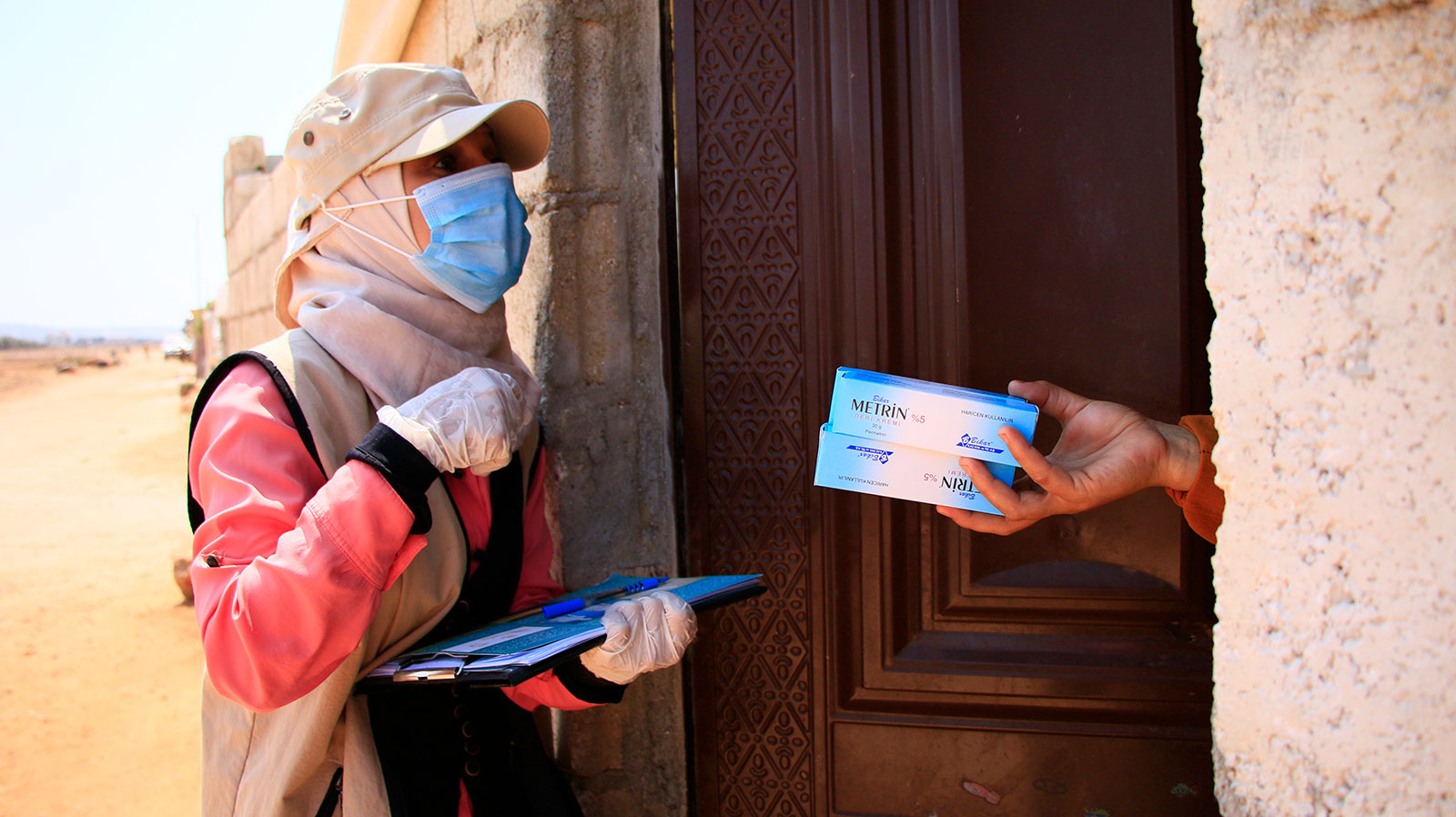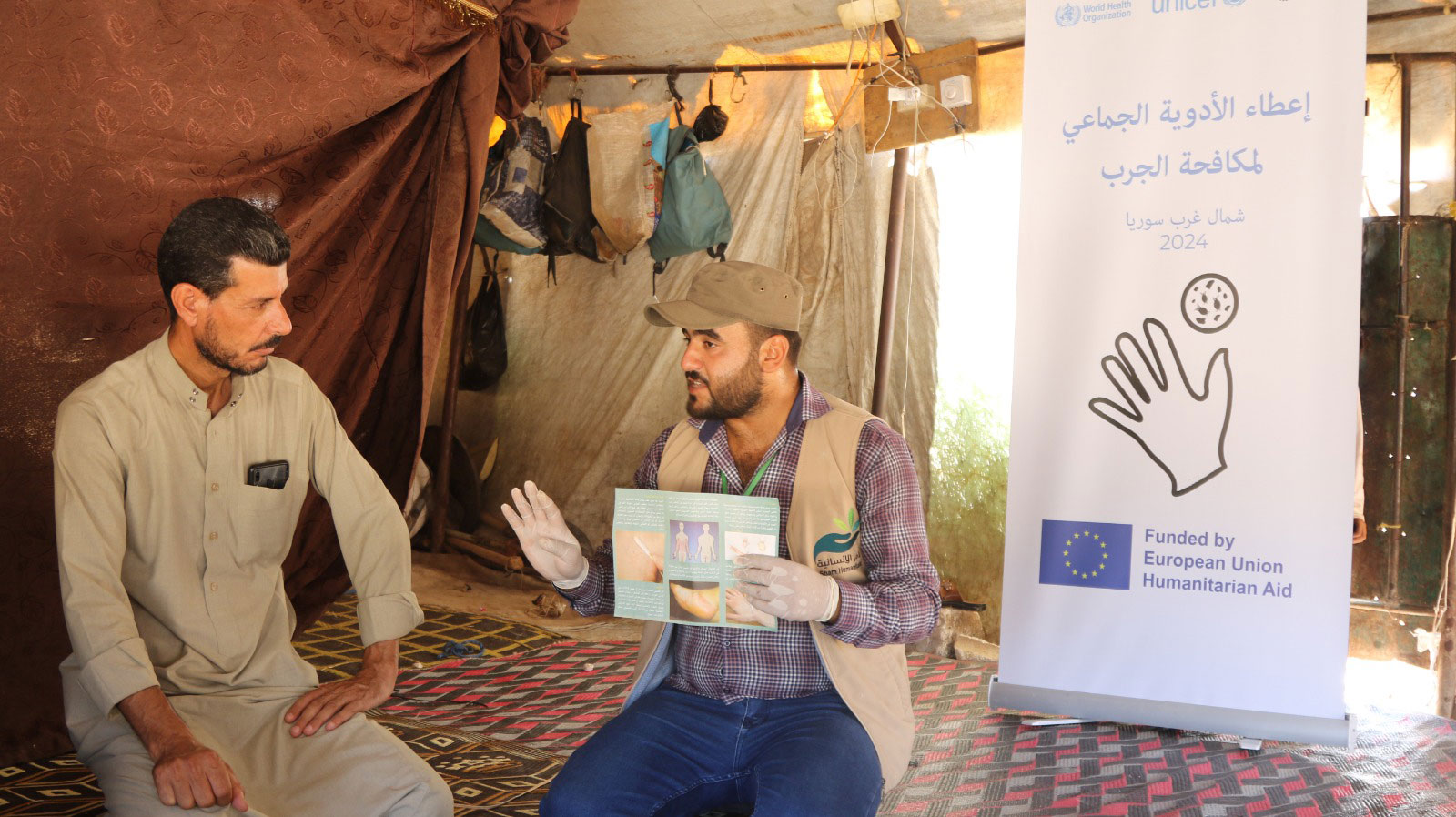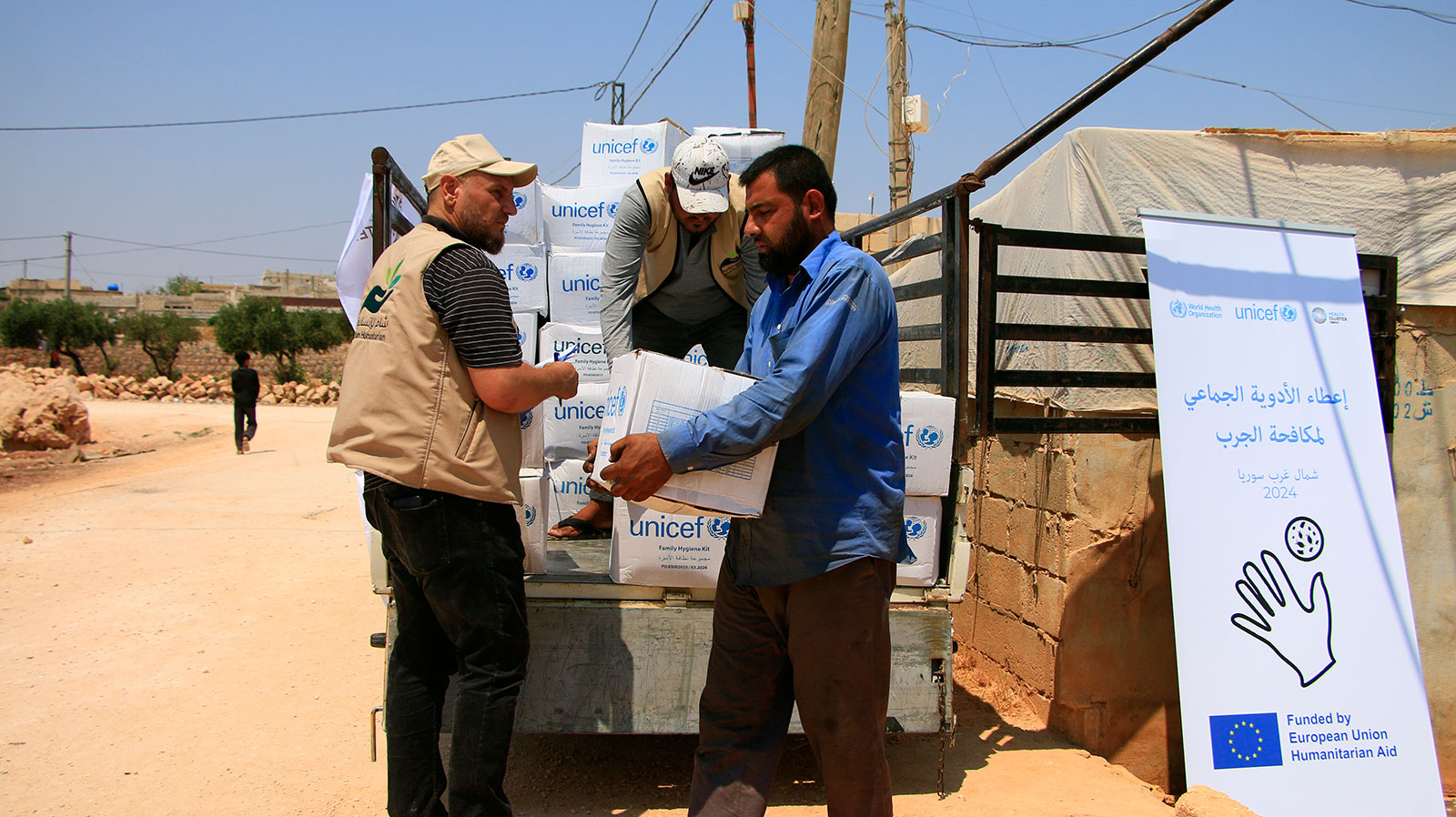 Door-to-door distribution of permethrin cream in camps as part of the scabies response in north-west Syria. Photo credit: © Al-Sham Humanitarian Foundation 4 August 2024 – In north-west Syria, lack of sanitation services, compounded by limited water supply and overcrowding, creates the ideal conditions for infectious diseases to spread. Scabies is among the infections of concern in north-west Syria, especially in densely populated camps as it is transmitted person to person through close skin contact.
Door-to-door distribution of permethrin cream in camps as part of the scabies response in north-west Syria. Photo credit: © Al-Sham Humanitarian Foundation 4 August 2024 – In north-west Syria, lack of sanitation services, compounded by limited water supply and overcrowding, creates the ideal conditions for infectious diseases to spread. Scabies is among the infections of concern in north-west Syria, especially in densely populated camps as it is transmitted person to person through close skin contact.
WHO collaborated with the United Nations Children’s Fund (UNICEF) and Health and WASH (Water, Sanitation and Hygiene) Cluster partners to launch a permethrin-based mass drug administration on 16 July 2024. This large-scale response to scabies has been made possible thanks to financial support from European Union Humanitarian Aid.
 Community health workers raise awareness among families living in camps on how to treat and prevent scabies. Photo credit: © Al-Sham Humanitarian Foundation The campaign will last for 21 days and target more than 180 000 people in 71 camps and 7 communities. Partners have also distributed UNICEF-procured hygiene kits and trained community workers and hygiene promoters in how to treat scabies and prevent its further spread.
Community health workers raise awareness among families living in camps on how to treat and prevent scabies. Photo credit: © Al-Sham Humanitarian Foundation The campaign will last for 21 days and target more than 180 000 people in 71 camps and 7 communities. Partners have also distributed UNICEF-procured hygiene kits and trained community workers and hygiene promoters in how to treat scabies and prevent its further spread.
“In north-west Syria, an estimated 2 million people are living in overcrowded camps with poor living conditions. This presents a huge risk for the spread of scabies. We are very grateful to the European Union for its support in helping to curb the spread of scabies through this mass drug distribution,” said Ms Rosa Crestani, Team Lead for the WHO Field Presence Office in Gaziantep, Türkiye.
 UNICEF-procured hygiene kits are distributed as part of the scabies response in north-west Syria. Photo credit: © Al-Sham Humanitarian Foundation WHO carried out a comprehensive scabies community survey exercise in north-west Syria in December 2023. This revealed a high prevalence of scabies, surpassing the 10% community transmission threshold set by WHO, with higher rates reported in camps.
UNICEF-procured hygiene kits are distributed as part of the scabies response in north-west Syria. Photo credit: © Al-Sham Humanitarian Foundation WHO carried out a comprehensive scabies community survey exercise in north-west Syria in December 2023. This revealed a high prevalence of scabies, surpassing the 10% community transmission threshold set by WHO, with higher rates reported in camps.
People living in camps were found to be 7 times more likely to contract scabies than people living in the wider community. Children and elderly people living in resource-poor areas and people with compromised immune systems are at higher risk of infection.


